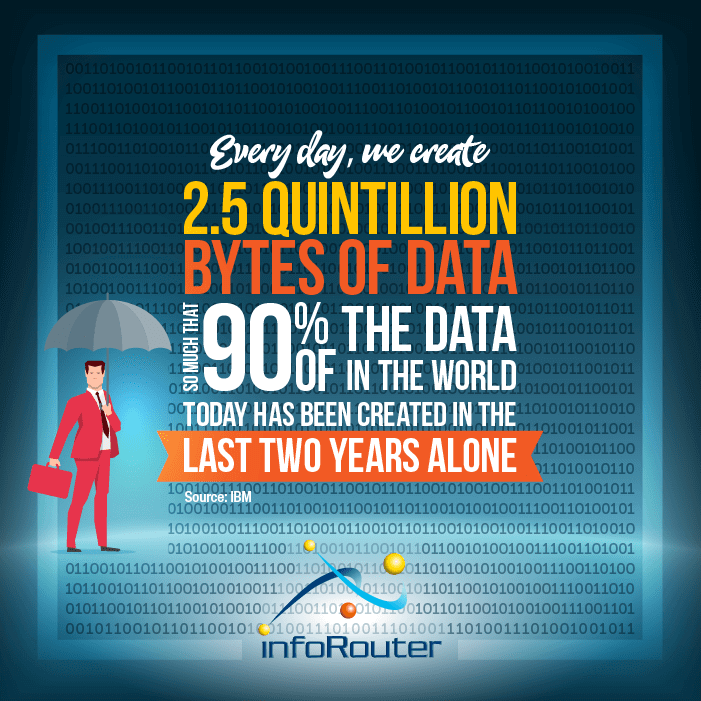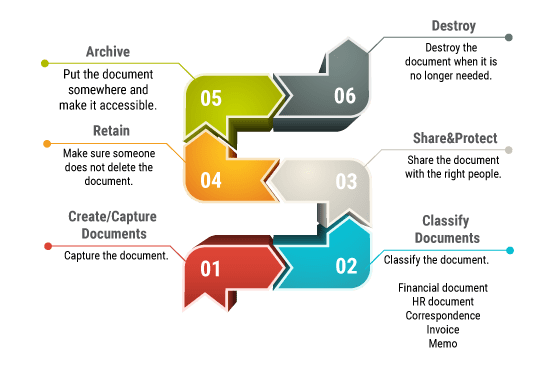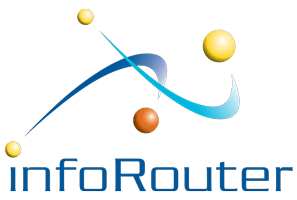Centralized Content Management for Efficient Workflows
From Creation to Archival & Disposition: Manage Content with Confidence
Optimize Your Content Lifecycle with Advanced Solutions
Effective content management is more critical than ever because content is being generated at an unprecedented pace. In today’s fast-paced digital world, content flows into a typical organization through various channels. This content can take many forms, including invoices, application forms, patient records, insurance claims, correspondence, memos, emails, project documents, proposals, legal documents, and much more. Additionally, the format in which this content arrives varies significantly, encompassing Word documents, PDF files, Excel spreadsheets, scanned images, text files, and even emails.
Handling this diverse range of structured and unstructured content in different formats requires robust systems, especially when considering the need to comply with regulatory guidelines that grow stricter each year.
According to IBM, "Every day, we create 2.5 quintillion bytes of data—so much that 90% of the data in the world today has been created in the last two years alone." This statistic underscores the challenge of managing such vast amounts of data.
So, how do organizations cope with the volume of content that must be captured, managed, secured, shared, and retained? How do they ensure that content is delivered effectively to decision-makers who rely on it? And how do they incorporate digital transformation into their processes?
This is where infoRouter Content Management Software (CMS) comes into play.
The Content Management Lifecycle
Effective content management covers the entire content lifecycle, from creation and capture to retention and disposition. A strong content management process ensures that content is not only managed efficiently but also aligns with the organization’s goals. The key stages of the content management lifecycle include:
- Capturing and Generating Digital Content
- Classification and Categorization
- Publishing Content - Sharing & Securing
- Retention
- Archiving
- Disposition (Destruction)

Enterprise Content Management System for Digital Assets
A comprehensive enterprise content management system like infoRouter allows organizations to manage not only documents but also digital assets such as audio files, video files, and other forms of digital content creation. These assets play a crucial role in creating relevant content for different audiences and help support consistent branding using form templates.
Content Management (CMS) provides multiple benefits:
- Publishes in native formats, making costly conversions unnecessary.
- Makes the content automatically available, avoiding any Webmaster bottlenecks and saving time.
- Enforces text generation rules with electronic form templates.
- Allows the content creation from content-producing systems through Web Services APIs for maximum integration and versatility.
- Delivers information from multiple portals to different audiences by using different portal rules, if necessary.
- Allows authors to contribute and access documents 24-7 from anywhere in the world.
Supporting Digital Transformation and Regulatory Compliance
Incorporating a content management system is a critical part of an organization's digital transformation. As companies move towards managing their digital assets and documents more efficiently, they must also ensure compliance with increasing regulatory requirements. Systems like infoRouter help enterprises stay on top of regulatory compliance while maintaining institutional knowledge securely.
Content Management Software Features
- Handling all types of file formats, from Word documents and PDFs to digital assets like audio and video files
- Managing revision control to track document versions
- Supporting approval processes to ensure all content passes through necessary checks before being published
- Facilitating quick and accurate searching and retrieving of content, including mission-critical assets
- Ensuring content remains secure through robust content security features
- Automating content creation through form templates to enforce consistent branding
Digital Asset Management and Content Delivery Tools
In today's content-driven landscape, digital asset management plays a critical role in ensuring that all types of content—including audio files, video files, and other digital formats—are managed seamlessly. infoRouter provides organizations with the tools to not only manage their documents but also deliver relevant content to the right audience at the right time.
- infoRouter Web Portals provide easy access to content for both internal and external users
- infoRouter Document Library organizes and stores documents securely for easy retrieval and collaboration
Improving the Content Management Process with infoRouter
infoRouter’s advanced features streamline the content management process by automating key tasks and ensuring the efficient handling of digital content creation. Some of the key tools available include:
“Managing our content used to be a nightmare. infoRouter has automated and standardized our entire content creation process, leading to significant improvements. We’ve seen a substantial reduction in embarrassing errors, and our workflow is now more efficient than ever.”

